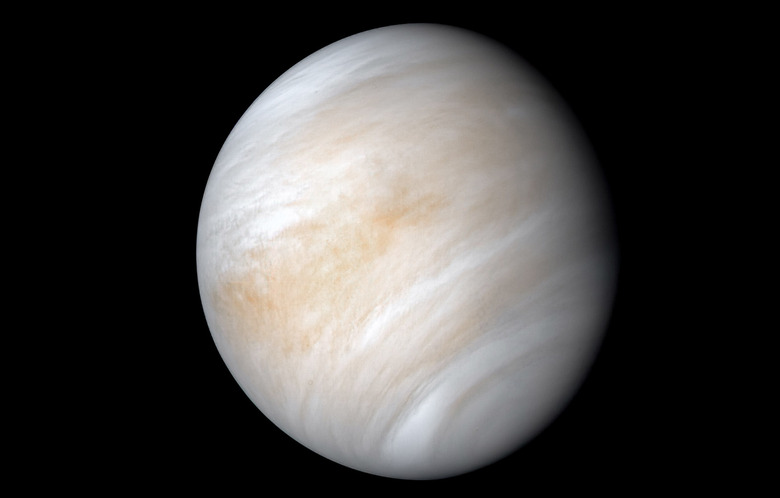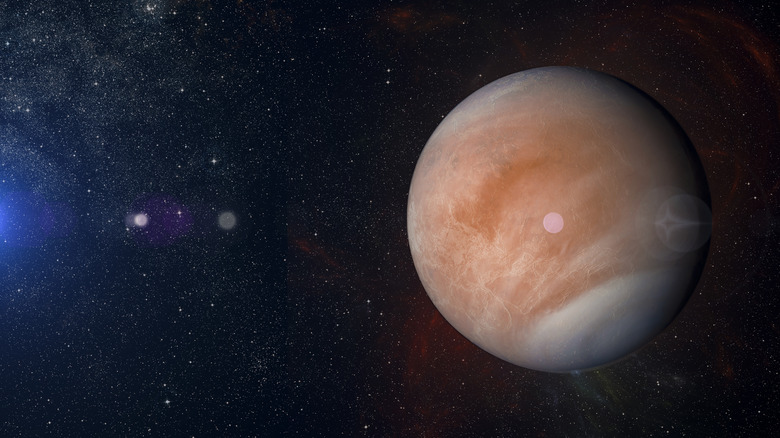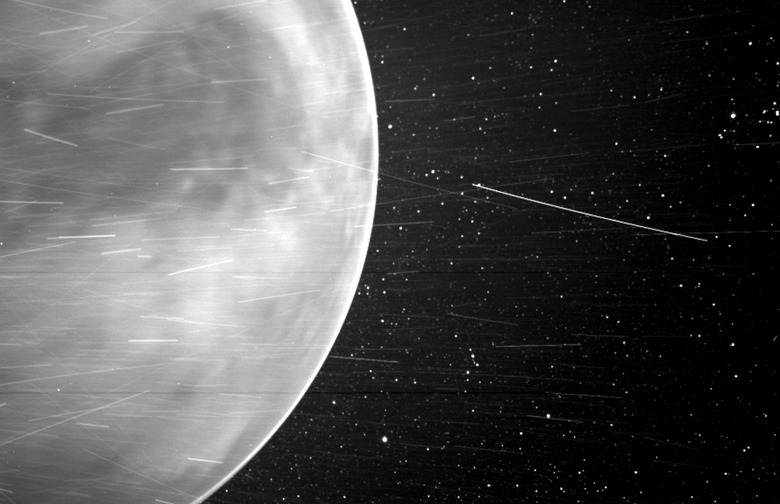Scientists Say Life Could Be Making A New Environment On Venus
"Life finds a way." The words that Ian Malcolm so famously spoke in 1993's Jurassic Park still ring true, it seems. Based on a new study, scientists say that life could indeed be finding its way on Venus.
How life on Venus could be making its own environment
Last year, researchers announced the discovery of phosphine in Venus' atmosphere. At the time, the researchers claimed that it could be a possible sign of life on Venus. After all, the colorless and odorless gas is often the result of organic matter breaking down. This is something that they've seen happen on Earth in the past.
That hypothesis proved to be a bit of a stretch, though, as the clouds that fill Venus' atmosphere are full of carbon-dioxide. This meant that the supposed lifeforms would have to be extremely resistant to the drops of sulfuric acid surrounding them. However, now, a new study is further pushing the hypothesis that life on Venus could be possible.
According to scientists at MIT, the sulfuric acid in the atmosphere could be neutralized by ammonia. While it isn't completely proven, scientists believe that ammonia could be present in the Venusian atmosphere. This belief is based on data recovered by Venera 8 and the Pioneer Venus probe missions from the 1970s. If present, ammonia would set off a long chain of chemical reactions that could make the atmosphere habitable for lifeforms. That would make life on Venus a possibility.
Proof in the pudding
Sara Seager, a co-author on the study and a planetary sciences professor at MIT addressed the study in a press release this week.
"There are very acidic environments on Earth where life does live, but it's nothing like the environment on Venus—unless life is neutralizing some of those droplets."
The entire idea that chemicals are somehow making life on Venus possible is intriguing. Of course, there's still a lot to be done if these researchers want to prove the theory. In fact, it would require another probing mission to the planet. Thankfully, both the European Space Agency and NASA are planning future missions in the next 15 years or so. But, that's a long time to wait.
For now, all we can do is look at all the data we already have in front of us. If the chemicals in the atmosphere are indeed making a way for life, it could open entirely new doors for us to explore and understand the planets in our Solar System. We're still working our way towards discovering proof of life on Mars, but who knows, maybe Venus could be the next planet we find it on.
More space coverage: Scientists want to send humans to Venus before Mars.


